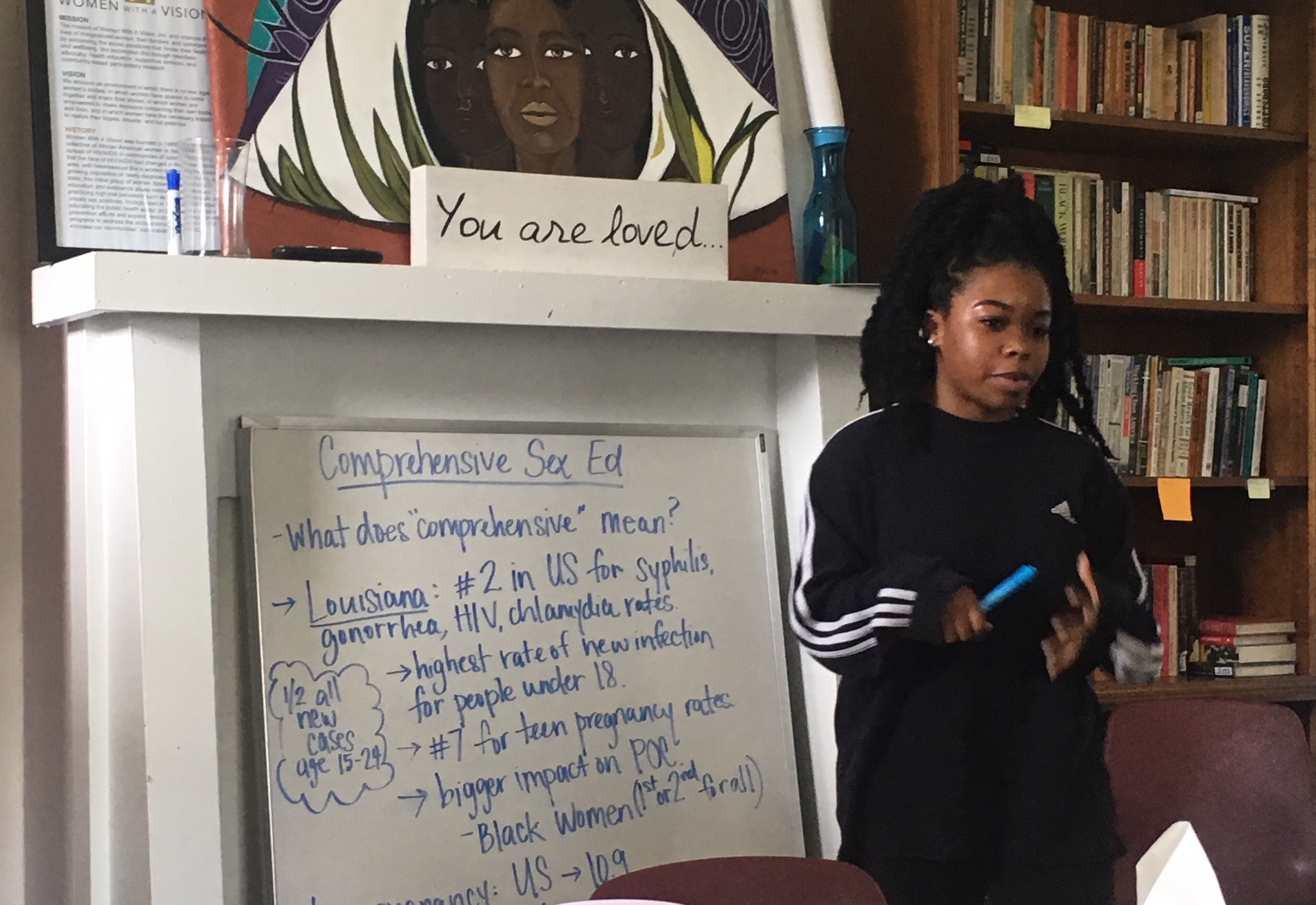It’s hard to believe the summer is almost over and we’re prepping to dive back into the fray of the school year again. This is a bittersweet moment for me as it marks the beginning of my last semester as an NCI RRRH intern. I’m so lucky to have been able to see this program evolve from its conception my sophomore year into its current form. Things have only gotten better! I’m extremely grateful for the opportunities this internship has afforded me and the relationships I’ve been able to make as a result of it. I can confidently say that I am in the position I stand today in no small part because I was given the chance to be a part of this program and grow into a very different version of myself than what I anticipated.
I’ve been doing a lot of reflecting lately on my personal and professional growth, and this reflection has informed my approach to the work I’ve taken on this summer. Part of this work has been revamping the mentorship component of YWWAV and digging deeper into why mentorship is so important for young Black women like myself as well as why it’s essential in the fight for reproductive justice. It is an unfortunate fact that many of the program participants, like lots of their peers, lack an abundance of positive relationships with other Black girls and women–whether these people are their friends, siblings, elders, mothers, teachers, counselors, etc. The relationships they do have may at best be shallow and fleeting or at worst lack consistency and compassion, be fraught with violence and/or manipulation, or be colored by selfishness or unresolved baggage. To break the harmful intergenerational cycles that bind many of us, we must redefine our relationships with one another so that they are based upon principles of loving sisterhood, so that they are true partnerships (regardless of age differences), so that they enable us to lift one another up. If we as Black women want the world to trust us, we must first learn to trust each other while simultaneously unlearning all the stereotypical falsehoods about Black women that we have come to believe ourselves. And to do that we must take time, plant roots together, treat each other and ourselves with care, turn outward towards one another, and work through our issues as communities. Black girls need to be reminded of all the possibilities and definitions of Black womanhood–especially the revolutionary ones that shatter the boxes our society too often attempts to trap marginalized women in. Black girls need to see Black women that come from the places they come from flourishing. They need to see that they matter. And Black women need to take on the responsibility of passing on their knowledge and loving Black girls into the people they need to be to serve as the future pillars of our community. This is the purpose of mentorship, and really the program as a whole, which is itself the brainchild of a young Black woman.

(Shante Fletcher, YWWAV alumna, educates workshop participants on CSE)
As YWWAV nears its second birthday, I have already seen so much growth in the program participants as they move through the stages of their teenage years, then early 20s. It’s been amazing to see the girls gain confidence in themselves and take on new leadership roles as they graduate out of the cohort. My favorite accomplishment this summer was helping our very first program alumna put on her own first workshop for the younger program participants. Talking about the sorry state of comprehensive sex ed in Louisiana, and specifically New Orleans, she helped the workshop members make connections between their own sex ed experiences and the greater issues of reproductive health and reproductive rights affecting them and their peers. These connections are crucial if they are to understand how cycles of reproductive injustice are perpetuated, and how broader social forces have very real effects on their own lives. This was actually one of the most successful workshops we’d had in a while, and it was just the beginning–this one workshop has blossomed into an ongoing curriculum. I would like to see this model carry on into the future as other program participants age out of the everyday cohort. My hope is that this group will continue to teach and learn from each other for as long as possible. People will not age out but be continually reintegrated, called to take on new roles that reflect their unique interests and talents.
I am fortunate to be able to say that I love the work I do. It is meaningful work. It is satisfying work. It is challenging work. And I get paid for it. Which is extremely important, because I am not (yet) financially privileged enough to work for free. But I need these experiences to become who my community needs me to be. This is another thing we understand at YWWAV, where the girls have been working this summer at paid internships in their chosen spaces all over the city. Perhaps if I had had such opportunities when I was their age, the road to here would have been an bit shorter. Perhaps if more of us had such opportunities, our world would be a more equitable place. I’ll forever be grateful to the generous donors and dedicated staff and faculty of NCI who make it possible for me to do the work that needs to be done, and share with others what has been shared with me.
